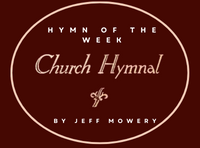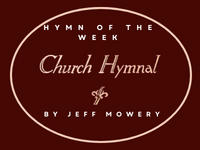Hark The Herald Angels Sing
Hark! the herald angels sing,
“Glory to the new born King,
peace on earth, and mercy mild,
God and sinners reconciled!”
Joyful, all ye nations rise,
join the triumph of the skies;
with th’ angelic host proclaim,
“Christ is born in Bethlehem!”
Hark! the herald angels sing,
“Glory to the new born King!”
Christ, by highest heaven adored;
Christ, the everlasting Lord;
late in time behold him come,
offspring of a virgin’s womb.
Veiled in flesh the Godhead see;
hail th’ incarnate Deity,
pleased with us in flesh to dwell,
Jesus, our Emmanuel.
Hark! the herald angels sing,
“Glory to the new born King!”
Hail the heaven-born Prince of Peace!
Hail the Sun of Righteousness!
Light and life to all he brings,
risen with healing in his wings.
Mild he lays his glory by,
born that we no more may die,
born to raise us from the earth,
born to give us second birth.
Hark! the herald angels sing,
“Glory to the new born King!”
One of the great Christmas carols and hymns, “Hark the Herald Angels Sing” was written by the great hymn writer of the 17th century – Charles Wesley. This deeply theological hymn has some unique twists in its origins that I found interesting that I wanted to share:
Charles Wesley was a rather somber man and he originally had requested that the song be sung to slow, solemn music, not the upbeat tune we have grown accustomed to. Can you imagine this song being sung slowly with a more solemn melody?
Wesley’s original opening line was “Hark! how all the welkin rings.” I have no idea what that means, but it sure does sound funny. George Whitfield, the famous English Anglican priest and friend of Wesley, is responsible for altering the original words to the version we have now.
One of early tunes that this song was sung to is the same tune as “Christ the Lord is risen today.” (I tried to sing these words with that tune, and just can’t do it.)
Finally, the last interesting fact about this song is that it was written during a time when Christmas Carols were thought to be somewhat sacrilegious. The English Puritan parliament abolished Christmas carols in 1627 because they were part of a “worldly festival.” What would these folks think about all the Christmas songs we sing today that don’t even mention Jesus’ name? Wow, how things have changed!
Whether in its original form or not and whether it passed the Puritan “muster” test, I think this is one of the great Christmas hymns of all time because of it’s depth of theology. Packed into these three verses are several essential Christian doctrines including:
Reconcilation between God and Man found only in Christ – “God and sinners reconciled”
Christ’s Eternal Nature – “Christ the Everlasting Lord”
The Virgin Birth – “Offspring of the Virgin’s womb”
Christ’s Humanity – “Veiled in Flesh”
Christ’s Deity – “The Godhead see” and “Hail the Incarnate Deity”
Christ Resurrection – “Risen with healing in His wings”
Regeneration – “Born to give us second birth.”
One of the personal issues I have with this song has nothing to do with it’s lyrics, it’s origins, or it’s theology. The issue I have is that I find myself singing it out of familiarity and repetition, and not pausing to recognize and acknowledge what I am singing. The angels came to the shepherds bringing glad tidings of great joy. But if the shepherds had listened only to the beauty of the angel voices, and not focused on obeying the instructions found in the angel’s words, they would have missed a great blessing.
I pray that during this time of year that, as you sing all these great Christmas songs that we have sung since childhood (Silent Night, Away in a Manger, Good Christian Men Rejoice, etc.) that you will pause, listen, and focus on the words you are singing. They are deeply theological. They are extremely beautiful. And they can be, with the proper mindset, powerfully worshipful.

